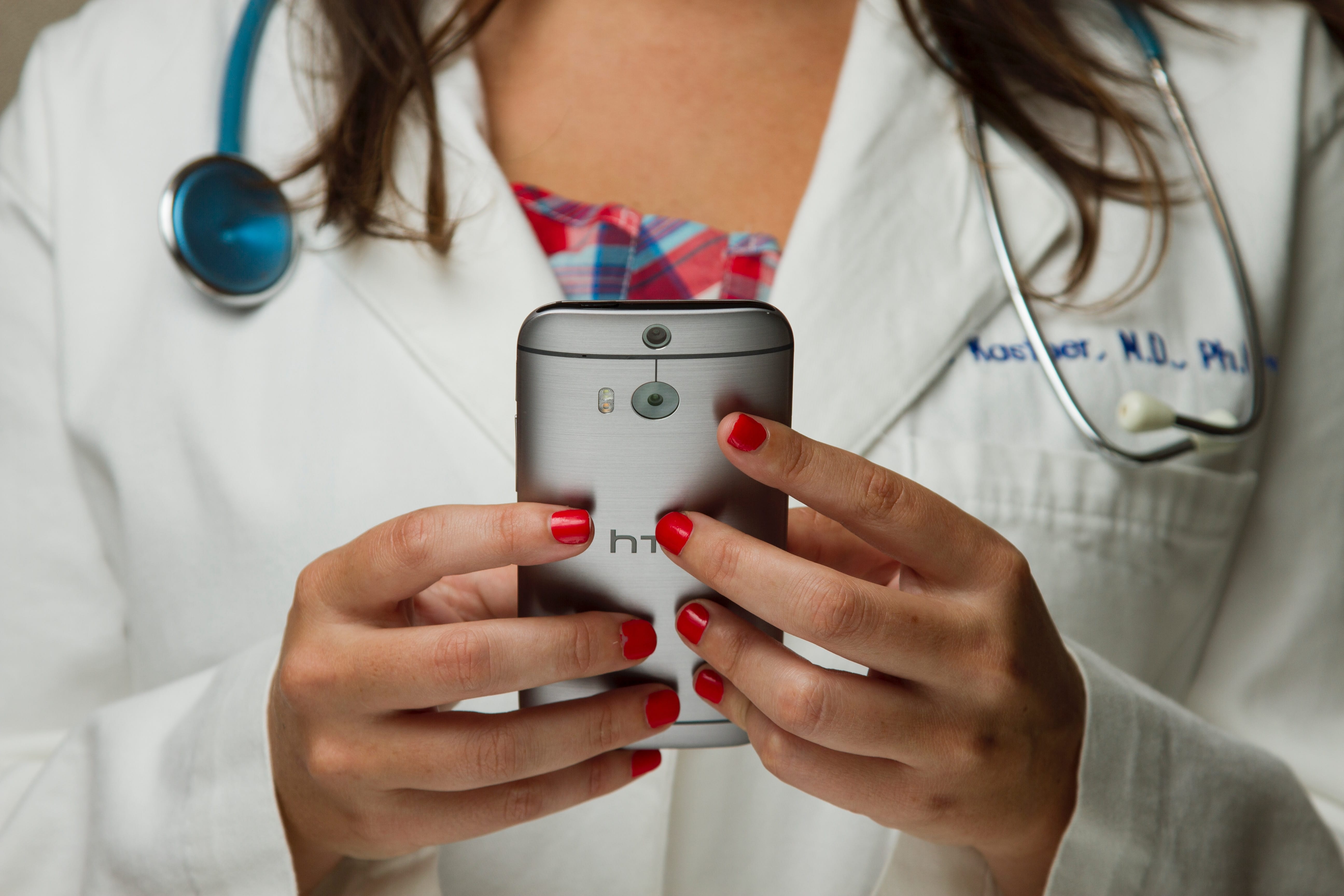As we incorporate health apps in our daily lives, we can monitor and manage our health which will reduce the chances of disease and thereby cut down healthcare costs.
Smartphones have weaved their presence into all aspects of our daily lives. And, it wouldn’t be wrong to say that much of it is because of mobile apps. There are apps for practically everything we could possibly need, including health apps.
Today we’ll talk about the utility of such apps in the arena of healthcare.
Apps can be rightfully credited to improve our wellbeing. From recording our sleep quality, counting the calories we consumed in a day, steps we walked to our hydration levels or making consultation possible without the physical presence of patient and healthcare provider, mobile apps have come a long way.
The road to providing efficient healthcare to all is long, but the health apps we have now are a good place to start.
So, as we claim that health apps are improving our lives, it is imperative to explain – ‘how?’ And that’s what we are going to do today.
A Reduction in Healthcare Costs
Mobile apps contribute to reducing healthcare costs in far too many ways.
- For starters, they help in taking preventive measures. Let me explain! Mobile health apps help us in monitoring our health on a daily basis and thereby prevent illnesses that could have happened. As patients begin to use preventive healthcare and remain healthy, many of the diseases due to which they needed to visit hospitals in the first place do not occur. This marks a significant reduction in healthcare costs.
- These apps also prevent hospital readmissions. As per a study, 80% of the patients who leveraged mobile apps and recorded their weight, blood pressure, etc., on a daily basis did not need readmission to the hospital thereby saving cost.
- Patients also frequently visit healthcare providers to know about their progress, symptoms, or to manage their health condition. But what if all this could take place with a few taps on smartphones? Yes! Mobile health apps can help patients track their progress, educate them about their symptoms and manage their condition. This can, in turn, lessen the frequency of their visits to the hospital.
- A lot of diseases progress simply because patients do not stick to the routine and prescription provided by the healthcare provider. While your healthcare provider cannot be there to manage your routine, mobile apps can (24/7)! These apps can nullify problems like patients not taking their medication responsibly or on time. Mobile health apps can be an effective tool to remind patients through reminders and push messages from healthcare providers themselves.
- Mobile health apps also facilitate remote assessments. These are inexpensive and save your visit to the hospital thereby saving costs.
- Mobile health apps also play a huge role in educating individuals about health conditions and their symptoms – all in creative ways. This helps in self-identification and early reporting of symptoms and thus saves efforts, lives, and medical costs.
Improved Efficiency and Speed of Healthcare Delivery
The quality of healthcare is measured by how efficient the entire process was and how quickly the patient received the service. These parameters are systematically fulfilled by mobile health apps.
Efficiency and speed of healthcare delivery have enhanced in ways we could not have imagined.
Now patients can track what they eat, how many calories they consumed, their sugar levels, etc. This quick and continuous method to always remain updated about your condition is helpful when a problem arises and you need to share your data with your healthcare provider. The solutions can then be more efficient and rather quick.
The fact that patients can share their health updates with their healthcare providers instantly and receive quick solutions is what adds to efficient delivery.
Ease of Data Collection for Health Care Providers
Another facility that mobile health apps lend is that of data collection.
It has become incredibly easy for patients and hospitals to share data with healthcare providers. Hospitals can now share patients’ information, their vitals and prescriptions, medical history and lab results, without any physical hassle – all this can now be done remotely.
Healthcare providers are thus saved from filling out forms, time and again. The data they receive has replaced the paperwork they had to do.
Now, as healthcare providers have all the information, they can provide quick advice and solutions (treatment) without the patient having to undergo various kinds of tests.
This saves unnecessary burden on the part of the practitioner and costs for patients.
Increasing Convenience for Patients
When we speak of enhancing the quality of healthcare, the convenience quotient cannot be left out. And the best that mobile health apps have done to date is providing patients with convenient healthcare.

Now patients no longer have to wait (read: suffer) in waiting rooms. They can rather have their healthcare providers right when they need them. Health apps enable patients to book appointments from the comfort of their homes so that they reach their doctors at the right time.
Patients can also view nearby doctors, their expertise, read genuine feedback, see their consultation charges, and then book an appointment.
Adding to the convenience is the option of online consultation. It is a comfortable option when the patient cannot physically visit the doctor or just requires general consultation.
This is especially useful for senior patients. Health apps save them from the hassle of traveling and waiting in waiting rooms.
Therefore, efficient treatment – right when the patient needs it – is the idea that health apps live by.
Conclusion
The costs of healthcare are skyrocketing like never before.
What can you do about it? Leverage innovative solutions to lessen the cost.
Health apps are that innovative solution. These apps are a relief not only for patients who are tired of elaborate bills, but also for providers who fall short of resources.
The best part about health apps?
As we incorporate health apps in our daily lives, we can monitor and manage our health which will reduce the chances of disease and thereby cut down healthcare costs.
Preventive healthcare is remarkable progress to happen courtesy of health apps.


Join the conversation!